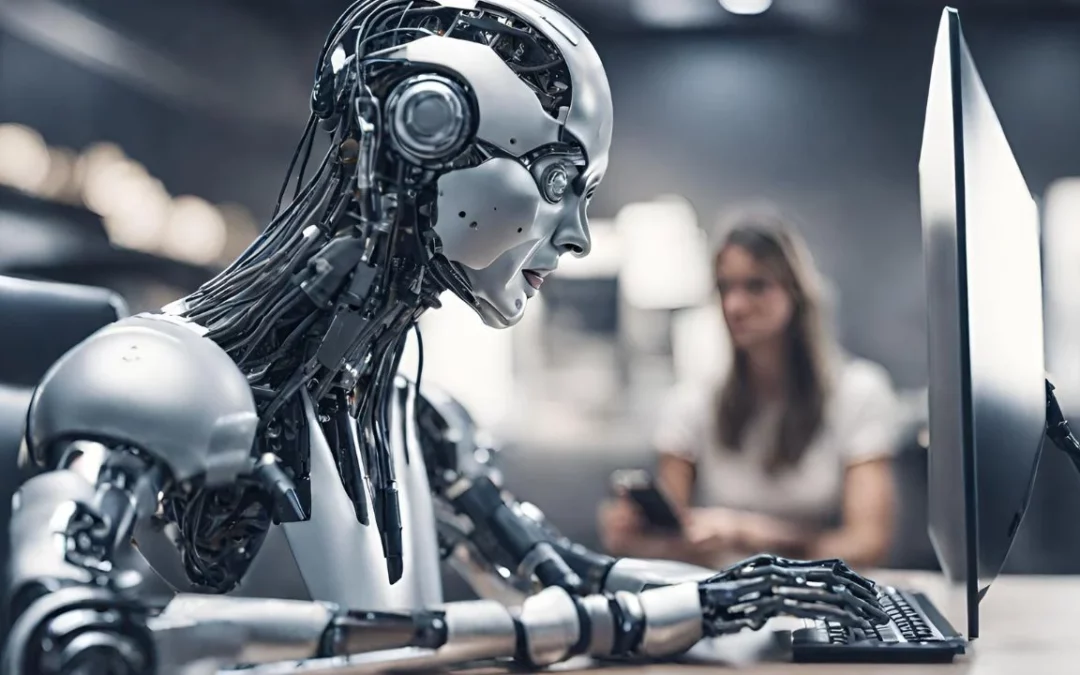Code Smarter, Not Harder: How AI Is Reshaping Software Engineering—and What You Must Do to Stay Ahead
By: Javid Amin | 01 October 2025
The AI Revolution in Software Engineering
In 2025, artificial intelligence (AI) is no longer a futuristic concept—it’s a daily reality reshaping industries, workflows, and careers. Among the most affected professions is software engineering. With the rise of large language models (LLMs), generative AI, and intelligent automation tools, many wonder: Will AI replace software engineers or make them more powerful?
This article explores that question in depth. As a senior editor, copywriter, and career strategist, I’ll guide you through the evolving landscape of software development, the role of AI, and the skills engineers need to thrive—not just survive—in this new era.
Understanding the Shift – AI’s Role in Software Development
AI is transforming software engineering in three major ways:
01. Automating Repetitive Tasks
AI tools like GitHub Copilot, Tabnine, and Amazon CodeWhisperer can auto-complete code, suggest functions, and even write boilerplate code. This reduces the time engineers spend on mundane tasks.
02. Enhancing Debugging and Testing
AI-powered testing frameworks can simulate user behavior, detect edge cases, and flag bugs faster than manual testing. This improves software quality and reduces time-to-market.
03. Accelerating Decision-Making
AI can analyze vast datasets to offer insights on performance, user behavior, and system bottlenecks. Engineers can make informed decisions about architecture, scalability, and optimization.
Augmenting Human Capabilities – Not Replacing Them
Rather than replacing engineers, AI is becoming a powerful ally. Here’s how:
01. Creativity and Problem Solving
AI can’t replicate human intuition, empathy, or creativity. Engineers still lead in designing systems, solving complex problems, and innovating new solutions.
02. System Architecture and Integration
While AI can generate code, it can’t architect entire systems. Engineers must design scalable, secure, and maintainable infrastructures, integrating AI-generated components responsibly.
03. Ethical Oversight and Governance
AI systems must be developed ethically. Human engineers are essential in ensuring fairness, transparency, and accountability in AI deployment.
Quote:
“The future belongs to engineers who combine coding with problem solving, design thinking and business acumen.” — Jaspreet Bindra, Co-Founder of AI&Beyond
The Role of Software Engineers in the Age of AI
Software engineers are evolving into hybrid professionals. Their roles now include:
- AI Orchestrators: Managing AI tools and integrating them into workflows
- Ethical Designers: Ensuring responsible AI development
- Cross-Disciplinary Collaborators: Working with data scientists, UX designers, and business strategists
- Prompt Engineers: Crafting effective prompts to guide generative AI tools
Essential Skills for AI-Augmented Engineers
To stay relevant, engineers must upskill. Here’s a breakdown of the most critical competencies:
01. Programming Languages
- Python: Dominates AI development
- R: Ideal for statistical analysis
- JavaScript & TypeScript: Useful for front-end AI integration
- C++ & Java: Still relevant for performance-critical systems
02. Machine Learning
Understanding ML models, training data, and evaluation metrics is essential. Engineers should learn frameworks like TensorFlow, PyTorch, and Scikit-learn.
03. Natural Language Processing (NLP)
NLP enables machines to understand human language. Engineers can build chatbots, sentiment analysis tools, and voice assistants using NLP libraries like spaCy and NLTK.
04. Algorithms
AI relies on algorithms for clustering, classification, and prediction. Engineers should master decision trees, neural networks, and reinforcement learning.
05. Data Analysis
Skills in data cleaning, visualization, and interpretation are vital. Tools like Pandas, NumPy, and Tableau help engineers turn raw data into actionable insights.
06. Mathematics & Statistics
Linear algebra, calculus, and probability theory form the backbone of AI. Engineers must understand these concepts to build and evaluate models.
Industry Demand – Where AI Skills Are Needed Most
AI is not limited to tech companies. Engineers with AI skills are in demand across:
- Healthcare: Predictive diagnostics, medical imaging
- Finance: Fraud detection, algorithmic trading
- Retail: Personalized recommendations, inventory forecasting
- Manufacturing: Predictive maintenance, robotics
- Education: Adaptive learning platforms, grading automation
Stat Insight: According to PwC, generative AI can boost software development productivity by 20–50%.
Career Paths in the AI Era
New roles are emerging for software engineers:
- AI-Augmented Developer: Uses AI tools to enhance productivity
- AI Ethicist: Ensures responsible AI practices
- Prompt Engineer: Crafts prompts for generative models
- AI Supervisor: Oversees AI-generated code and models
- AI Product Architect: Designs AI-powered systems and user experiences
Key Phrase Density: “AI career paths for engineers” and “future of software engineering” are embedded for SEO.
Challenges and Considerations
Despite its promise, AI brings challenges:
01. Bias and Fairness
AI models can inherit biases from training data. Engineers must audit and mitigate these risks.
02. Job Displacement Anxiety
While AI augments roles, some routine jobs may be automated. Upskilling is the key to resilience.
03. Ethical Dilemmas
From surveillance to misinformation, AI raises ethical questions. Engineers must advocate for responsible use.
Steps to Stay Ahead in the AI Race
Whether you’re a seasoned developer or just starting out, here are the key strategies to future-proof your career and thrive alongside AI:
01. Master AI-Augmented Tools
- Learn to use GitHub Copilot, Tabnine, and other AI coding assistants effectively.
- Understand how to prompt, refine, and validate AI-generated code.
- Treat AI as a collaborator, not a replacement.
02. Deepen Your Core Programming Skills
- Stay fluent in Python, JavaScript, and C++—languages that power AI systems.
- Build clean, scalable, and secure code that AI tools can enhance, not override.
03. Develop AI Literacy
- Understand machine learning, NLP, and neural networks.
- Learn how AI models are trained, evaluated, and deployed.
- Explore frameworks like TensorFlow, PyTorch, and Scikit-learn.
04. Focus on System Design and Architecture
- AI can generate code, but only humans can design robust systems.
- Learn cloud architecture, microservices, and API integration.
- Think in terms of scalability, security, and user experience.
05. Build Ethical and Responsible AI Mindsets
- Study AI ethics, bias mitigation, and governance frameworks.
- Advocate for transparency, fairness, and accountability in AI deployment.
- Stay informed about global AI regulations and standards.
06. Sharpen Your Data Skills
- Learn data cleaning, visualization, and interpretation.
- Use tools like Pandas, NumPy, and SQL to extract insights.
- Understand how data fuels AI decisions and predictions.
07. Cultivate Cross-Disciplinary Thinking
- Combine coding with design thinking, business strategy, and user empathy.
- Collaborate with product managers, UX designers, and data scientists.
- Become a tech translator—someone who bridges AI and real-world impact.
08. Stay Curious and Keep Learning
- Follow AI trends, attend webinars, and join developer communities.
- Take online courses in AI, ML, and prompt engineering.
- Treat learning as a lifelong habit, not a one-time upgrade.
Collaboration, Not Competition
The future is not AI vs. humans—it’s AI with humans. Software engineers will:
- Collaborate with AI to build smarter systems
- Use AI as a creative partner
- Focus on high-value tasks while AI handles the repetitive ones
Quote:
“Instead of fearing AI, let’s explore how it can turn programmers into superhuman problem-solvers.” — TalentSprint
Bottom-Line: Empowerment Through Evolution
AI will not replace software engineers—it will redefine them. The engineers of tomorrow will be:
- Creative thinkers
- Ethical leaders
- AI collaborators
- Cross-functional innovators
By embracing AI, engineers can unlock new levels of productivity, creativity, and impact.




